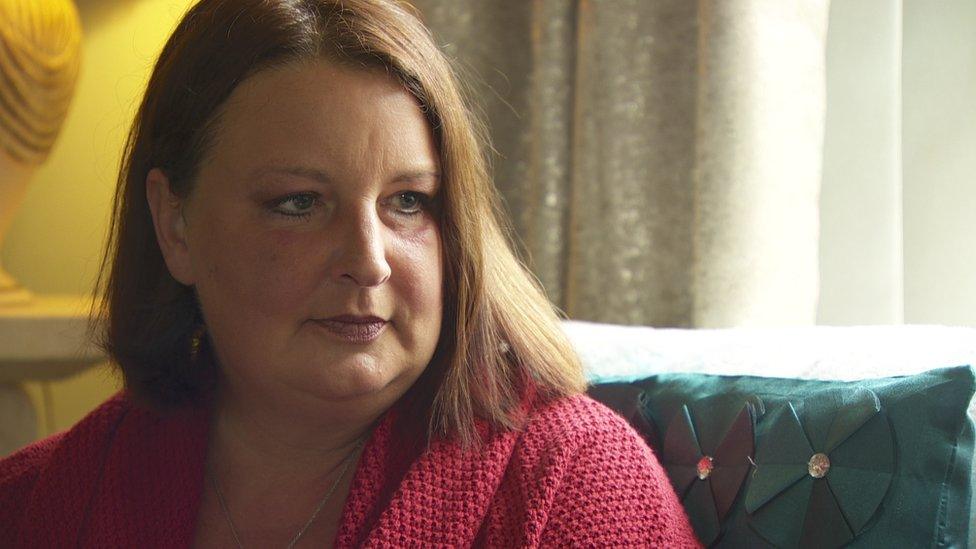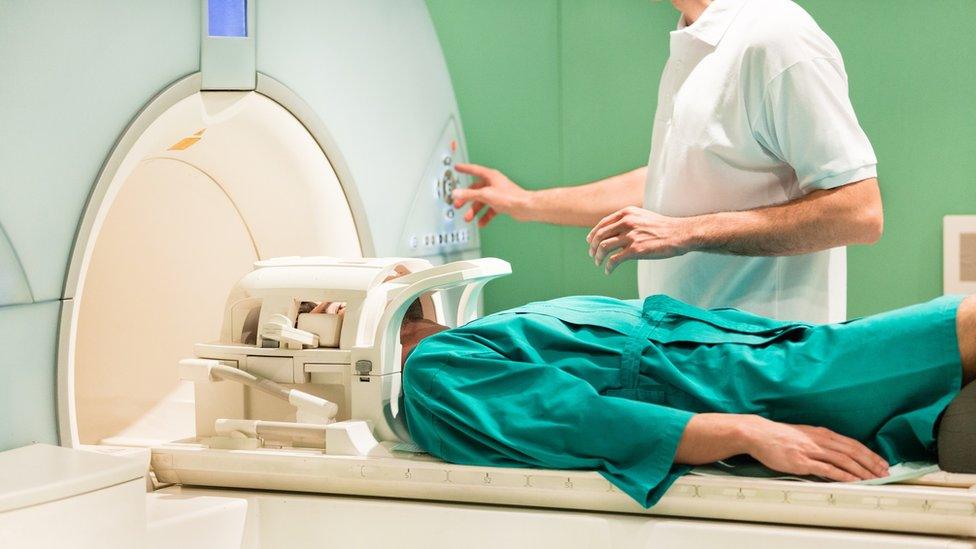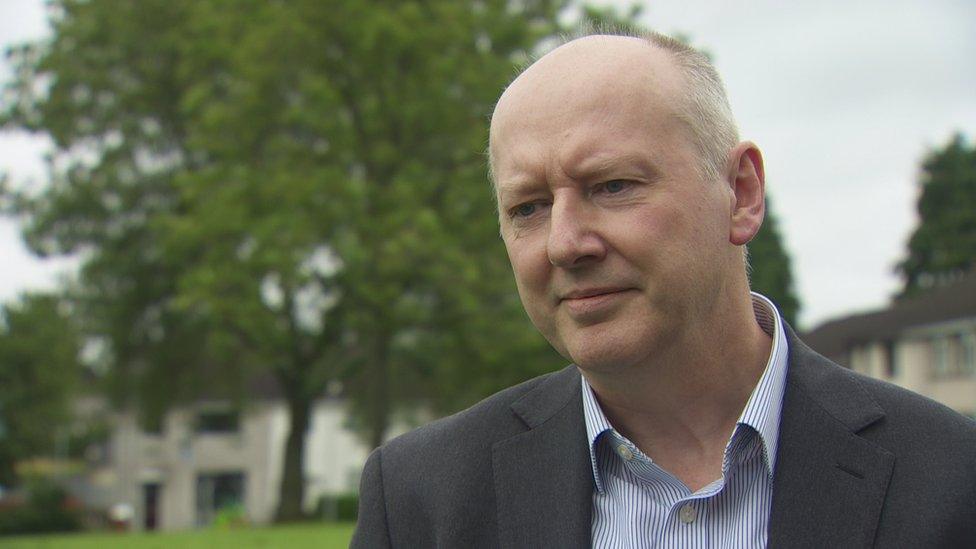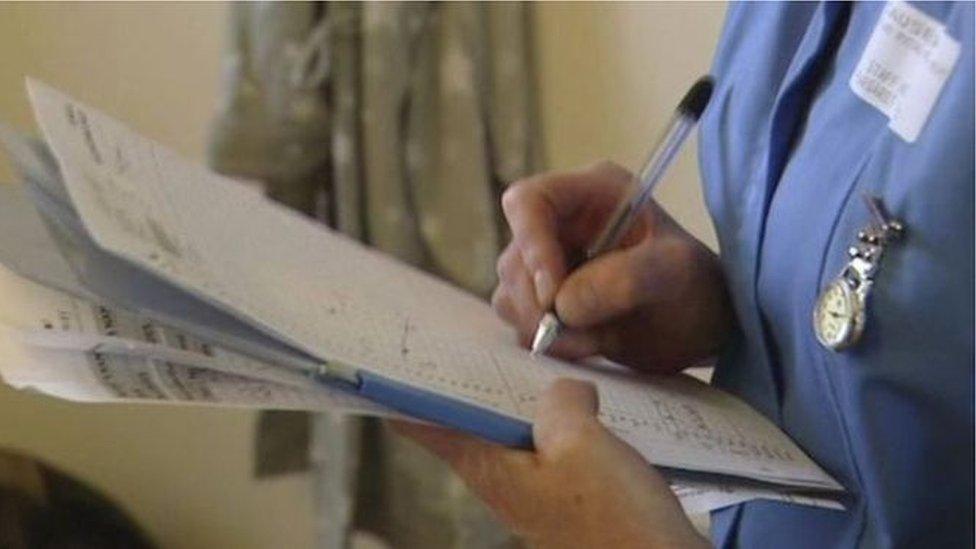Dr Michael Watt recall: Patients fear not getting answers
- Published

Jennie Robinson said her changed diagnosis was 'devastating'
A woman who discovered she was misdiagnosed with multiple sclerosis (MS) as a result of NI's biggest patient recall said there is growing concern people will not get answers.
Dr Michael Watt, the consultant at the centre of the recall, diagnosed Jennie Robinson in 2015.
She was later told by another consultant that she did not have MS.
Earlier this week, the BBC revealed that a hearing into the actions of Dr Watt has been delayed until 2020.
The MS Society has described the development as worrying and said answers to critical questions, including what went wrong within the hospital system to trigger such a significant patient recall, should not be delayed.
On Tuesday, The Irish News also reported Dr Watt is likely to retire on medical grounds.

Neurology is the field of medicine concerned with the operation of the brain
A recall was sparked following concerns over possible misdiagnoses.
As part of the review, Jennie Robinson was told by another consultant that she did not have MS - but was given three different diagnoses.
Mrs Robinson continues to take up to 30 different tablets per day.
"I had been living for several years with an MS diagnosis and in many ways getting on with it," she told BBC News NI.
"I had also prepared for my future and arranged for a do not resuscitate notice to be included in my medical records.
"Then my world was turned upside down when I was told I didn't have MS."

Thousands of Dr Michael Watt's patients have been re-examined due to concerns about possible misdiagnoses
She added: "You'd think I'd be relieved but I went into free fall. I just couldn't cope.
"Last Christmas I was in despair. I felt confused, angry and I didn't know what to do.
"There was little in terms of a follow up with a therapist.
"I thought about suicide and rang Lifeline, external who helped."
The BBC approached Dr Watt's employers for a right of reply - the Belfast Trust said it was "unable to comment on any individual patient".
The trust said in May 2017 it "decided to recall Dr Watt's patients to ensure all had received the correct diagnosis and were on appropriate treatment".
It added that "any patient who received a change of diagnosis has been informed… and they apologise for the stress caused".
'Inquiry must deliver'
The BBC reported that an official hearing into the actions of Dr Watt has been delayed until next year.
The MS Society, which represents some of the affected patients, have said they deserve answers.

David Galloway is director of the MS Society, one of the charities supporting those misdiagnosed
"Patients who were caught up in the recall don't yet have answers as to why the recall was necessary," said David Galloway, director of the MS Society.
"They don't understand what was going on within the Belfast Health Trust system - the conditions that means so many patients had to be recalled.
"Our focus is now on the Lockhart Inquiry set up by the department - it must now deliver."
The recall is complicated due to the number of people involved and the need to examine how Dr Watt worked, the volume of work and how he was supported.
On top of that, a diagnosis of a neurological disease is difficult to make.
And in some neurological diseases like MS, there is no definitive test.
Meanwhile, the Department of Health has said it recognises the delay in the release of an outcomes report in June - for reasons outside their control - is frustrating.
But they said the recall remains a matter of priority and that detailed briefings have taken place this week with more scheduled.
- Published21 August 2019

- Published4 January 2019

- Published2 May 2018

- Published8 October 2018
